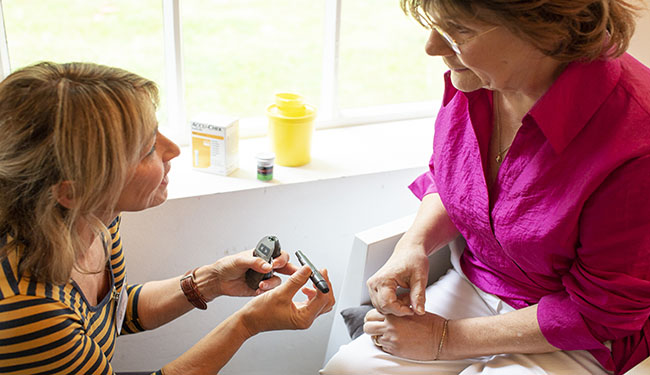 LIFESTYLE changes could be a possible way to reverse Type 2 diabetes, say Dutch scientists.
LIFESTYLE changes could be a possible way to reverse Type 2 diabetes, say Dutch scientists.
In a study published today in the BMJ Nutrition Prevention & Health journal, scientists at the Louis Bolk Institute in the Netherlands have evaluated the ‘Reverse Diabetes2 Now’ programme, where patients with Type 2 diabetes participate in a six-month intensive programme based on lifestyle and nutrition, with a further 18-months optional support and follow-up.
Out of the 234 participants who completed the study, results showed that:
- After 24 months, over two-third of the responders used less glucose-lowering medication (67%), and nearly one third 28% ceased all glucose-lowering medication (28%).
- Notably, 71% of insulin-users at baseline (n=47 of n=66 insulin users) were no longer using insulin at 24months.
- After 24 months average HbA1c levels (a measure of the average blood glucose levels over the previous weeks) did not change significantly, however more participants had Hb1Ac levels in the normal range after 24 months (53%) compared with baseline (45%).
- After 24 months, the participants had a lower body weight, a smaller waist circumference, a lower BMI and lower triglyceride values.
- After 24 months, the participants felt less tired, reported feeling better and had a higher qualityof life score.
Lead author Dr Gerda Pot, from the Louis Bolk Institute and King’s College London, said: “Addressing the underlying causes of a lifestyle disease like Type 2 diabetes sounds logical but so far few studies have investigated its long-term effect. This study shows that lifestyle interventions can also be effective in the longer term for type 2 diabetes.”
The programme, developed by the Dutch Foundation ‘Voeding Leeft’ (Nutrition Alive) aims to increase knowledge about diabetes and the influence of nutrition, exercise and dealing with stress on the disease.
The prevalence of type 2 diabetes has risen sharply during the last decade, with 425 million people worldwide now suffering from the disease, largely due to lifestyle choices, which include unhealthy eating habits.

